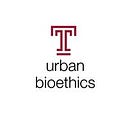What is Urban Bioethics to you?
This month, I had the pleasure of asking some of our MA in Urban Bioethics students what Urban Bioethics is to them — and this is what they told me. Enjoy reading their perspectives!
— Prof. Providnza Loera Rocco, JD, MSW, MBE, HEC-C
“Urban bioethics provides an opportunity to look beyond the classroom into the community. As a medical student, I am learning a lot about the human body, and studying urban bioethics wonderfully complements the medical school curriculum by allowing me to explore humanity more broadly. I think that understanding how the density, diversity, and disparity of urban settings impacts patient health outcomes will be invaluable as a future physician.”
- Hannah Calvelli, MD/MAUB, Class of 2024
“Urban Bioethics means conscientiously training your mind to think in solution-driven ways that help the most marginalized in a society. Urban Bioethicists use science-driven data and first-person narratives of those individuals that have experienced hardships to create more sustainable ways to narrow the divide between haves and have-nots. Urban Bioethicists work in many platforms to close the gaps and center an underserved group of people. We work in medicine, policy change, study design, public health and more.”
- Morganne Dougherty, BSN, RN, CPN
“Urban bioethics means a taking up of the cause of medical or biological civil rights for vulnerable populations due to issues unique to the urban setting.”
- Dr. Valerie Armstead, Professor, Clinical Anesthesiology
“Who are the systems of healthcare and its environment failing? How? Why is it failing many people so “close” to the system? What must we do to change this? HEALTH EQUITY IS NECESSARY!”
- Quinn Harrigan, MD/MAUB Class of 2024
“To me, urban bioethics means having a specific set of tools necessary to improve the healthcare system by reducing the disparities that minority communities face.”
- Omodele Durojaye, MD/MAUB Class of 2024
“Urban Bioethics to me is an intellectual space to better understand the societal disparities in an urban setting. This is done through the lens of better understanding ethics and morals. It also provides a platform in thinking through ways in which we can create a more just society by re-evaluating ethics and norms.”
- Geohaira Sosa, MD/MAUB Class of 2024
“To me, urban bioethics encompasses the ethical context in which urban communities exist. It gives us a unique lens as we explore the different aspects of our communities and think about ways in which we can facilitate positive change.”
- Jenny Nguyen, MD/MAUB Class of 2021
“If I had to use a couple words it would be: social context, advocacy, humanism, and holistic care.”
- Miloni Parekh, MD/MAUB Class of 2021
“To me, urban bioethics means giving underserved populations the opportunity to take control of their own health and wellness.”
- Zaineb Alhassani, MD/MAUB Class of 2021
“Urban Bioethics to me means an opportunity to assess how bodies, systemically labeled within a social context, are affected by the environmental landscape and medical institutions tasked with ensuring the health and quality of health of those bodies (residents).”
- Naida Montes, MAUB Certificate Class of 2020, PhD Candidate GIS
“The urban bioethics toolkit deepens my medical knowledge, empowers me to advocate for Temple’s patients and the wider North Philadelphia community, provides language for issues I have long struggled to understand and reminds me why I chose medicine. When I face a challenging issue in the emergency department or in my non-clinical work, I reflect on the principles I’ve learned in the program and the way forward is made clear. I’m deeply grateful for the opportunity to be a student at CUB.
- Dr. Megan Healy, Associate Professor, Clinical Emergency Medicine, Assistant Program Director, Emergency Medicine Residency
